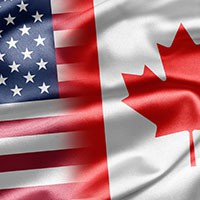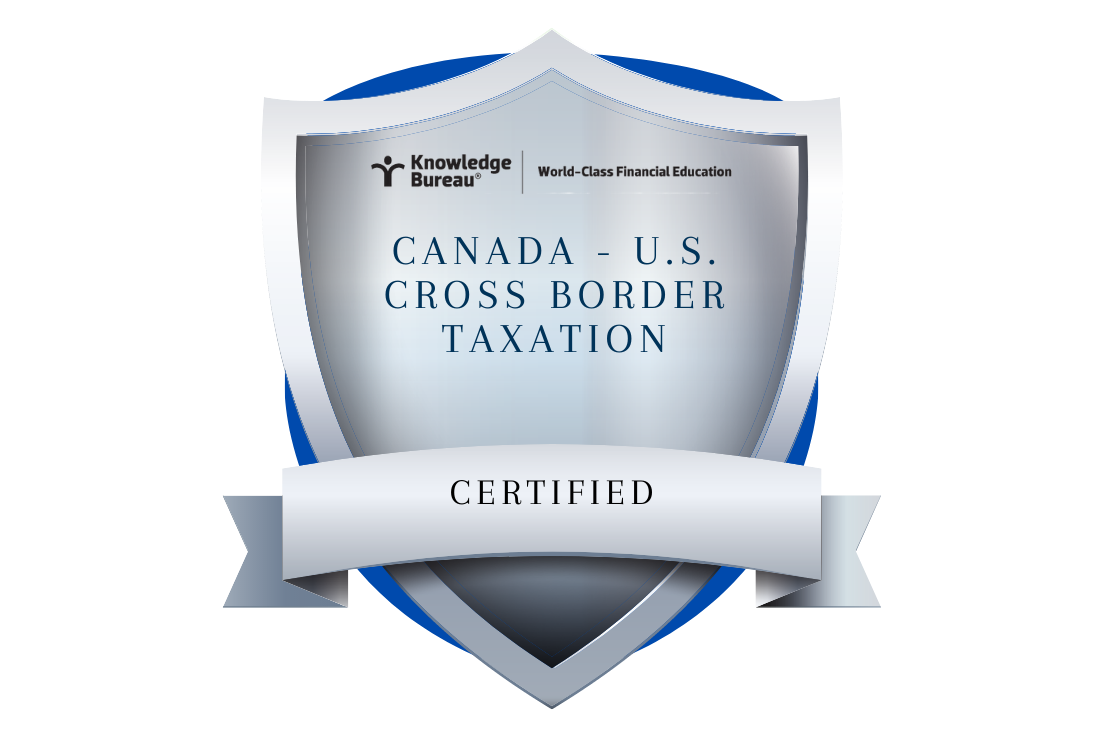There’s More to Cross Border Tax Then Meets the Eye

As baby boomers age, technology makes it possible for people and businesses to operate globally, and economic changes make it appealing for people and businesses to purchase investment property globally. As well as the increase in the sharing of financial information between countries, cross border taxation issues become key for cross border employment, entrepreneurship or asset ownership, as does the issue of residency and U.S. citizenship.
Cross border taxation is a complicated issue that likely affects a growing segmentation of your client base. If you work with affluent boomers are you prepared to discuss cross border taxation issues as well as recognize and advise on how certain actions on both sides of the border affect a person’s tax situation? If the answer is no, the Canada - U.S. Cross Border Taxation certificate course will provide you the comprehensive general knowledge needed to help support some of your best clients in this unique area.
Opportunity
Cross border taxation is a complex landscape that many advisors are not well-versed in. Improving your knowledge around this area can strengthen your relationship with your clients, who are likely some of your best and higher net-worth clients, and perhaps even receive some referrals from these individuals.
What You Will Learn By Taking The Knowledge Bureau Course
Students will learn the key concepts surrounding residency, non-residency, immigration, emigration, taxation of U.S. citizens and residents as well as other th e taxation issues surrounding cross-border transactions from a Canadian and U.S. point of view.
e taxation issues surrounding cross-border transactions from a Canadian and U.S. point of view.
The course includes all relevant recent tax changes including:
- Lifetime gift & estate tax exemption changes
- Non-residents of the U.S. who meet the substantial presence test in the current year (i.e. file treaty form 8833 to claim closer ties to Canada) are required to abide by foreign reporting rules
- 8891 forms have been repealed and replaced with form 8833 treaty filings & TDF 90-22.1 forms (FBARs) are now called FinCEN 114 forms and must be electronically filed
- Temporary employment earnings of up to $10,000, per employer, in an individual’s non-resident country is not taxable in that country under the Canada-U.S. Tax Convention for federal purposes (state taxation is different)
The course includes all relevant and recent tax changes. The chapters feature case studies, which will ensure that you'll be able to adequately explain such subjects as how Canadian and U.S. tax laws differ, the benefits and protections of tax treaties, how U.S. estate and gift taxes apply to residents and non-residents, how to enter the U.S. to work or live, the tax consequences of terminating residence, and what is FATCA (Foreign Account Tax Compliance Act) and what are its effects
The course and the case studies cover a lot of real-life situations for residents of both countries. Each chapter is written in such a way that is simple and easy to understand. A lot of the technical parts of the course can be further researched in your EverGreen Explanatory Notes. This is a perfect course for someone who wants to gain a working knowledge of cross border taxation issues between the U.S. and Canada.
—Richard L., ON
What’s Included •
- Personal course selection consultation
- Virtual campus orientation
- Lesson and study plans
- Personal instructor email support
- Comprehensive Knowledge Journal
- EverGreen Online Research Library
- Knowledge Bureau calculators
- Testing and certification
CE | CPD Credits
Knowledge Bureau | 30 CPE credits
Bottom Line: Cross border taxation is a complex issue that likely affects a growing segmentation of your client base. Being well-versed in this area not only differentiates yourself from your competitors but provides true value to your clients that will be much appreciated.
Canada - U.S. Cross Border Taxation course is just one of six courses needed to earn your DMA™ Corporate Tax Services Specialist designation.
©Knowledge Bureau, Inc. All rights Reserved